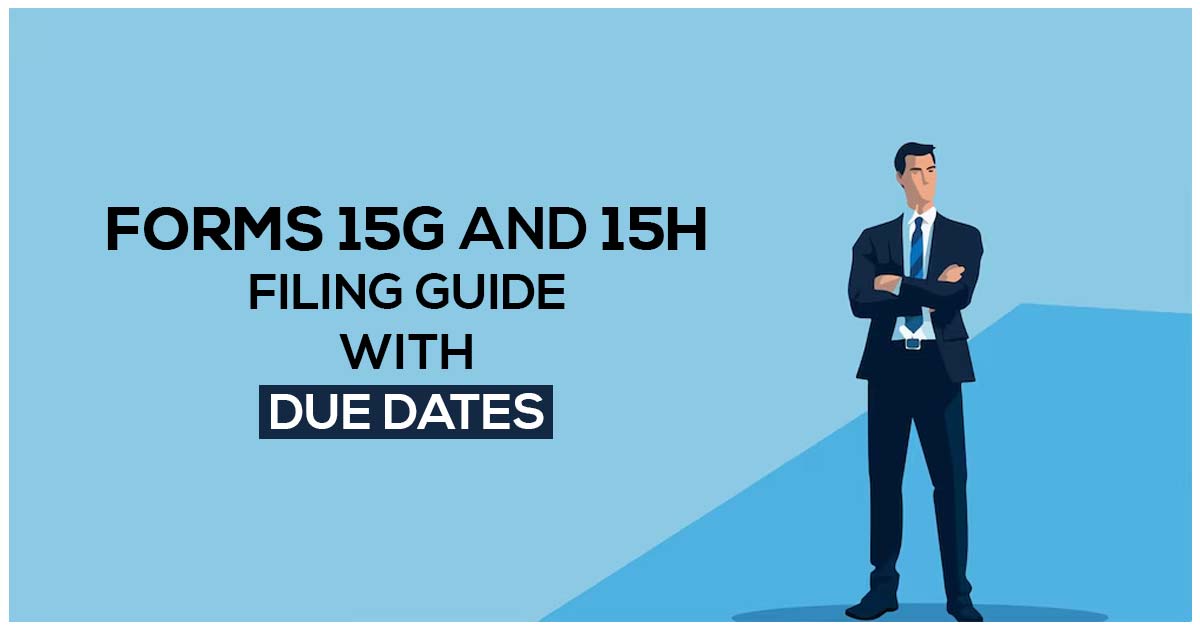
Banks have the privilege to deduct a collection of revenue income officially termed TDS, which is a method of collecting tax on one’s interest income. Also, there’s an exemption limit of Rs. 2,50,000 under which, if your overall income falls, the same is charged. According to Section 194A of the IT Act, 1961, Banking Companies or Co-operative Societies governed by the RBI and Post Office are ordered to debit TDS when interest income exceeds Rs 50000 per year. (100,000/- in case of a senior citizen). In other cases limit is Rs. 10,000 from F.Y 2025-26.
Even if the amount of interest is very considerable, any TDS on interest credited to your savings bank account won’t be deducted by the banks.
When FDs are made for a more extended period of time and you’ll get the amount only when it matures, in that case, tax at source on the interest added up will be deducted by the bank for the year. However, no interest has been paid to you.
But, there is a criterion via which you can save your interest from banks–
Due Date for Filing of 15G and 15H Form
| Date of ending of the quarter of the financial year | Due Date |
|---|---|
| 30th June | 15th July |
| 30th September | 15th October |
| 31st December | 15th January |
| 31st March | 30th April |
Filing Process of the Form 15G and 15H
Form 15G and 15H are self-declaration forms to declare that their total estimated income for a particular year does not exceed the Basic Exemption limit, including such interest income provided by a bank, which is required to be submitted by the assessee so that he/she can be rid of the TDS deduction on interest on fixed deposit. Basically, banks ask the depositors to submit these forms each year, and they have certain specific rules. Form 15H is for senior citizens, while the other one, i.e. Form 15G, is for the rest of the people. Let’s understand them precisely.
Form 15G: (Under the age of 60 yrs)
Any person who is a resident of India can submit a 15G form. The benefit of this scheme is not for NRIs. Any particular body, except a company, can submit this form, i.e. any individual, HUF, Trust, Association of Persons or Body of Individuals. The only condition is that the person is under 60 years of age.
Form 15H: (Senior Citizens)
Form 15H is for those who are beyond 60 years of age or during the financial year, complete 60 years, provided that their tax liability on an estimated income basis is negligible for the financial year.
Note Worthy:
- Make sure you submit the details of your PAN card when the forms are being submitted. The drawback of not submitting the PAN card is that your TDS will be deducted @20% rate, 10% more than the usual rate, regardless of the fact that you have submitted Form No. 15H and 15G. While submitting the forms, it is always advised to get a response from the bank about the same.
- Always submit Form 15H and 15G quarterly so that banks cannot deduct the tax before the submission.
- Sometimes, banks may deduct tax even when you have deposited the forms; in that case, the deducted amount will not be refunded because the tax has already been submitted to the government. The only solution to this is to file your IT return, and after that, claim it as a TDS refund.
- Both the stated forms have a one-year validity period. If your financial year expires, you must resubmit Form 15G and 15H if you want a nil TDS reduction for the fresh year.
Check Also: Due Dates for E-Filing of TDS/TCS Return and 15G/15H Form
